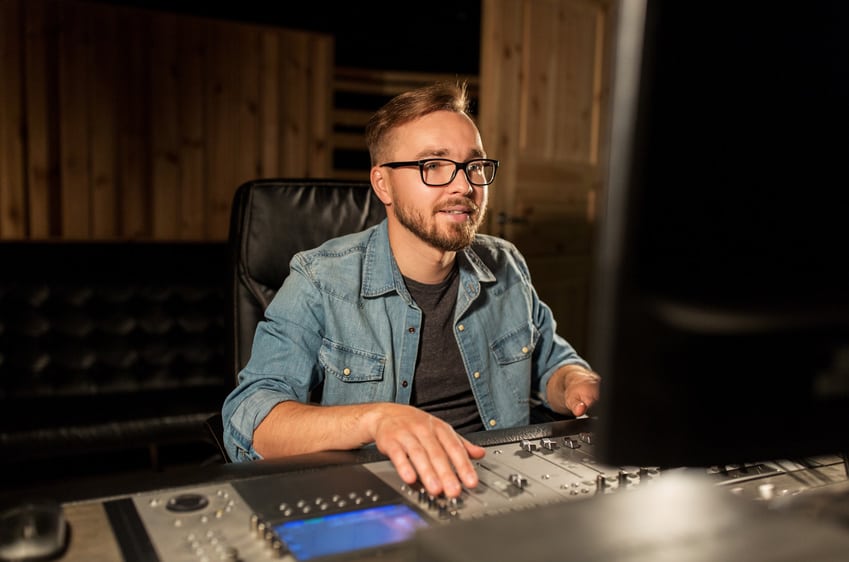A Sound Designer works on the audio side of filmmaking and other types of production. They must have a wide range of skills and experience to do their job well.
They have to be familiar with all of the audio equipment, software and techniques used in their profession. They also need to have excellent time management skills to meet deadlines and produce high quality work.
Education and Training
Sound designers need a strong knowledge of music production, sound editing and recording technology. Many choose to take on an associate, bachelor’s or master’s degree program that offers courses in these areas.
Many of these programs also offer an emphasis in film sound design. A growing recognition of the importance of this area of filmmaking has led to the development of specialized programs and a greater number of opportunities for aspiring sound designers.
Developing your skills by working as an intern or assistant is another way to gain experience in this field. Many new entrants to the industry work their way up through these positions, learning from those with more experience while they develop their skills.
You should also spend time listening to movies, shows and video games, paying attention to the way the audio tracks are composed and how the sound designs complement the visuals. This will help you develop and refine your own creative approach to this field. Maintaining a positive attitude is also important for your success in this career. Stay focused on your goals and try to remain optimistic when you encounter challenges.
Experience
Sound designers need a wide range of skills to do their jobs well. They need to be creative and imaginative when producing original sounds, and they need to know how to edit and manipulate audio files on a computer. They also need to be able to work within a team and take direction from others.
They can find work in a variety of different sectors, including film and TV production companies, video game studios, theatres and music recording studios. Some work as freelancers, providing their own digital audio workstations and recording equipment.
It takes time and dedication to gain the experience necessary to become a Sound Designer. Entry-level roles often involve working as assistants to more experienced professionals. These positions can provide invaluable training and exposure to the world of post-production. In addition, it’s important to develop a portfolio of your work to show potential employers and clients. Having field recording experience is also very helpful, as you can use this to create your own libraries of sounds. Having the right microphones is also essential.
Creativity
From the sonic worlds of film and video games to theatrical productions, sound designers are the architects that craft immersive sonic experiences. Creativity and imagination are key for this role.
A strong understanding of acoustics, analog and digital audio recording, as well as music composition is essential for the job. A knowledge of synthesis is also important as is a good grasp of the post-production process. It is also important to understand the difference between diegetic and non-diegetic sound.
Being a successful Sound Designer requires being a true jack of all trades. You will often be tasked with searching through commercial audio libraries to find the right sounds for each scene and you may need to record and edit field sounds as well. Additionally, Sound Designers are often expected to be able to work quickly as deadlines in the film and post-production industry can be rushed. Therefore, it is important to be proactive in your career and seek out every opportunity that is available to build up your experience as well as your portfolio of works.
Communication
Sound designers convey aural emotional journeys that accompany visual storytelling in movies, video games and theater. They can work in film and television production companies, music recording studios, theatres or even run their own audio design businesses. This type of career is ideal for those who have the technical chops and are willing to put in the hard work to master their craft.
They need to communicate well with their team and be able to listen to others’ perspectives. They need to know how to operate a variety of different types of equipment and software used in audio production. They need to understand how a script or storyboard impacts the audio.
They must also be able to work well under tight deadlines, as there is often pressure on project schedules. To be successful, they need to have a creative spirit and be able to stay inspired in their work. This can be done through watching movies with interesting and unexpected sound design and by building and maintaining strong creative connections with other audio professionals in the industry.
Technical Skills
Sound designers need to have a good understanding of technology and recording equipment. They also need to know how to use audio editing software such as Pro Tools. The ability to record a variety of sounds is important, as is the ability to use different microphones. Being able to plan and organise is another skill that can be useful in this role. This is because it can help them to be more productive and to keep track of the various files that they have been working with.
Some sound designers work in film and television production companies, video game studios, theatres and music recording studios. Others work as freelancers and run their own businesses.
Regardless of where they are employed, sound designers must be able to meet the needs of their clients and colleagues. This requires them to have a flexible attitude. They may need to learn quickly how to use new technology or adapt existing technology to suit the project that they are working on. They must also be able to complete their work within the specified time frame and budget.

